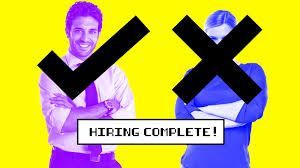AI Is Replacing Recruiters - But at What Cost?
Welcome to the Automation Dilemma
AI has officially moved from speculative buzzword to standard tool in the hiring process. From screening CVs to scheduling interviews and even conducting first-round assessments, AI promises efficiency, objectivity, and speed.
But as recent headlines show, the automation of recruitment may come at a cost we’re only beginning to understand. In the past fortnight alone, Workday was ordered to face legal action in the US over allegations that its AI-led hiring discriminated against applicants. And in Australia, deepfake job applicants have infiltrated the remote workforce, raising red flags about identity verification.
So the question isn’t can AI replace recruiters. It’s should it?

The Legal Backlash: Algorithms on Trial
Workday’s lawsuit is no sideshow, it’s potentially precedent-setting. Plaintiffs claim that AI models used to shortlist candidates have led to systemic bias, disproportionately disadvantaging applicants based on race, age, and disability.
This strikes at the heart of a dangerous misconception: that technology is neutral. In fact, AI hiring systems are only as unbiased as the data they’re trained on, and most are trained on historical hiring data riddled with bias.
If we hand over hiring decisions to algorithms with little human oversight, are we institutionalising the very inequities we’re trying to remove?
The Deepfake Dilemma: When Candidates Aren’t Real
While AI is automating recruitment, it’s also enabling the opposite: candidate fraud. Reports this month revealed that North Korean IT workers have been using deepfake technology and synthetic identities to secure remote roles under false pretences.
This raises serious issues about the integrity of remote hiring models. Can AI distinguish a real person from a generated one? Should it be expected to?
At some point, the illusion of frictionless hiring breaks down. Trust, accountability, and verification - these aren’t just technical problems. They’re human ones.
The Talent Experience: What Are We Losing?
AI is brilliant at parsing keywords. But it still lacks the emotional intelligence, contextual sensitivity, and nuance that defines great recruitment.
What happens when:
- Candidates never interact with a real human until offer stage?
- Value-aligned but non-linear CVs are screened out by algorithms?
- Hiring managers start to lose trust in the talent funnel?
We risk a hiring process that’s more efficient, but less effective. Faster, but more prone to misfires. And for purpose-led organisations, where culture and mission-fit are paramount, that trade-off may be too steep.
AI + Humans: A Better Path Forward
At Careers for Purpose, we’re not anti-AI. We’re anti-automation without intention.
Used well, AI can free up time, reduce admin, and surface blind spots. But the most powerful recruitment outcomes still happen when machines serve humans, not replace them.
That means:
- Embedding ethical review into your hiring tech stack
- Training humans to interpret AI outputs, not just accept them
- Designing candidate journeys that combine automation with empathy
Final Thoughts: The Future of Hiring Needs Humans
AI will keep reshaping recruitment. But the winners won’t be the companies with the slickest bots or most automated processes. They’ll be the ones who use technology in service of trust, inclusion, and discernment.
Because if we want hiring to be fair, strategic and human-first - we can’t leave it to the machines.



